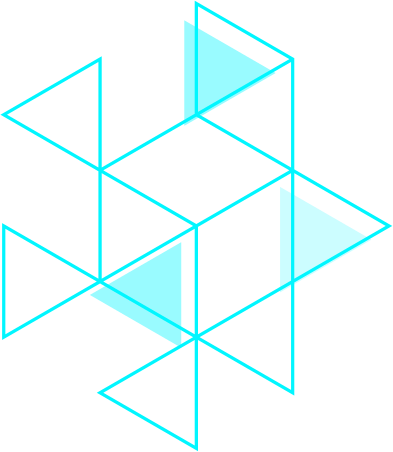Stunning user experience
for your digital product
Product design stages
Here’s a 5 stage process to make better products. Design thinking is a problem-solving method that focuses first and foremost on user needs, not product specs. Design thinking can help teams create better products that people love
01Empathise
Understanding the user’s wants, needs, and objectives is the first stage of the process. Observing and engaging with people emotionally and psychologically is part of this process.
During this phase, the designer tries to set aside their assumptions and gather real insights about the user. The best methods for building empathy can be found here.
During this phase, the designer tries to set aside their assumptions and gather real insights about the user. The best methods for building empathy can be found here.
- User Interviews
- Customer Journey Map
- Focus Groups
- Empathy Maps
- Data Gathering
- Product Workshop
02Define
Defining the problem is the second stage of Design Thinking. You’ll begin to make sense of what you’ve learned from empathizing with your users: what are the challenges they face?
Observe any patterns. What is the biggest problem your team needs to solve? A clear problem statement will emerge from the define phase. Instead of saying “We need…”, frame the problem in terms of your users: “Veterinary doctors in Berlin need…”.
You can now begin to formulate solutions and ideas – which leads to stage three.
Observe any patterns. What is the biggest problem your team needs to solve? A clear problem statement will emerge from the define phase. Instead of saying “We need…”, frame the problem in terms of your users: “Veterinary doctors in Berlin need…”.
You can now begin to formulate solutions and ideas – which leads to stage three.
03Ideate
It’s time to start looking for solutions. The ideation stage in the Design Thinking process is where creativity happens, and it’s critical to note that this stage is judgment-free! Ideation sessions are held to generate as many creative angles and ideas as possible.
From brainstorming and mind-mapping to body-storming and provocation, designers might use a variety of ideation techniques to generate new ideas. Provocation involves challenging established beliefs and exploring new options and alternatives through extreme lateral thinking.
You’ll narrow down your ideas towards the end of the ideation phase. The best ideation
From brainstorming and mind-mapping to body-storming and provocation, designers might use a variety of ideation techniques to generate new ideas. Provocation involves challenging established beliefs and exploring new options and alternatives through extreme lateral thinking.
You’ll narrow down your ideas towards the end of the ideation phase. The best ideation
- Moodboarding
- Wireframing
- Design sprints
04Prototype
The prototype is a scaled-down version of the product that incorporates the potential solutions identified earlier. Each solution is tested in this step to highlight any limitations and flaws.
Throughout the prototype stage, solutions may be accepted, improved, redesigned, or rejected based on their performance in prototypes.
Throughout the prototype stage, solutions may be accepted, improved, redesigned, or rejected based on their performance in prototypes.
05Test and iterate
Prototyping is followed by user testing, but the Design Thinking process does not end there. Test results often lead you back to a previous step, allowing you to redefine your original problem statement or come up with new ideas you hadn’t considered before.

“
Discovered hidden problems of users we haven’t even thought about
Their UX design team was very proactive and they have done an amazing job in unearthing the hidden needs and pain points of our potential users. ”
Their UX design team was very proactive and they have done an amazing job in unearthing the hidden needs and pain points of our potential users. ”
Juvan Katel
Project Executive, noneed.co

“
They identified the perfect candidates who seamlessly integrated with my existing team. The process was streamlined, and fast. We got our first qualified candidate in just 14 days. I highly recommend them to anyone looking to scale their tech team and take their business to the next level. ”
Juvan Katel
Project Executive, noneed.co
01 / 02

Make your digital product better with us
In an era dominated by the relentless march of artificial intelligence, a common refrain has emerged: …
Artificial intelligence just hit another milestone as major players in the tech industry gear up for …
Cursor: Where AI Meets Coding Efficiency Cursor isn’t just another code editor; it’s an AI-powered revolution …
Talk to us and get the project done

- We will respond to you within 24 hours.
- We’ll sign an NDA if requested.
- You'll be talking to product and tech experts (no account managers).





